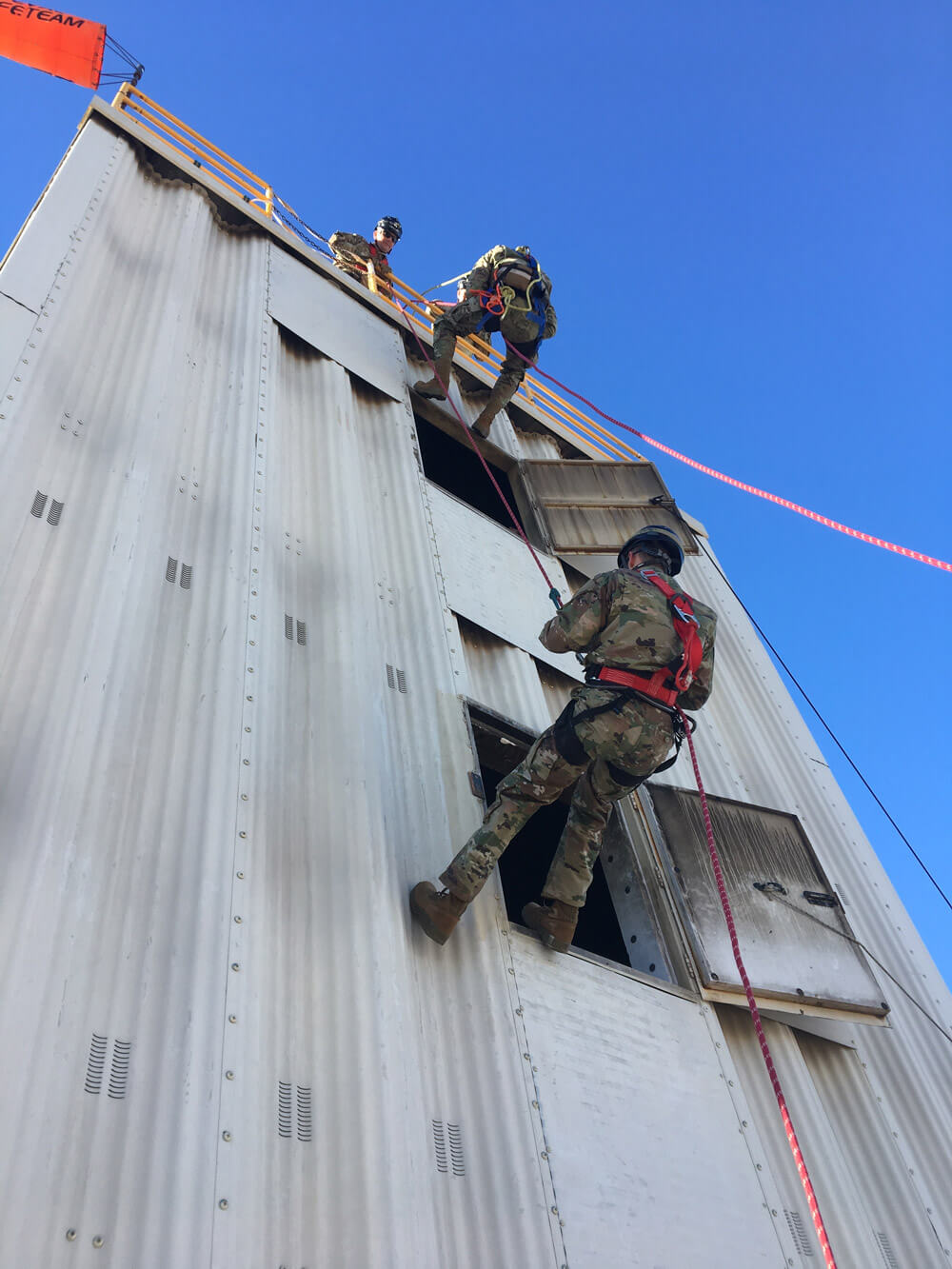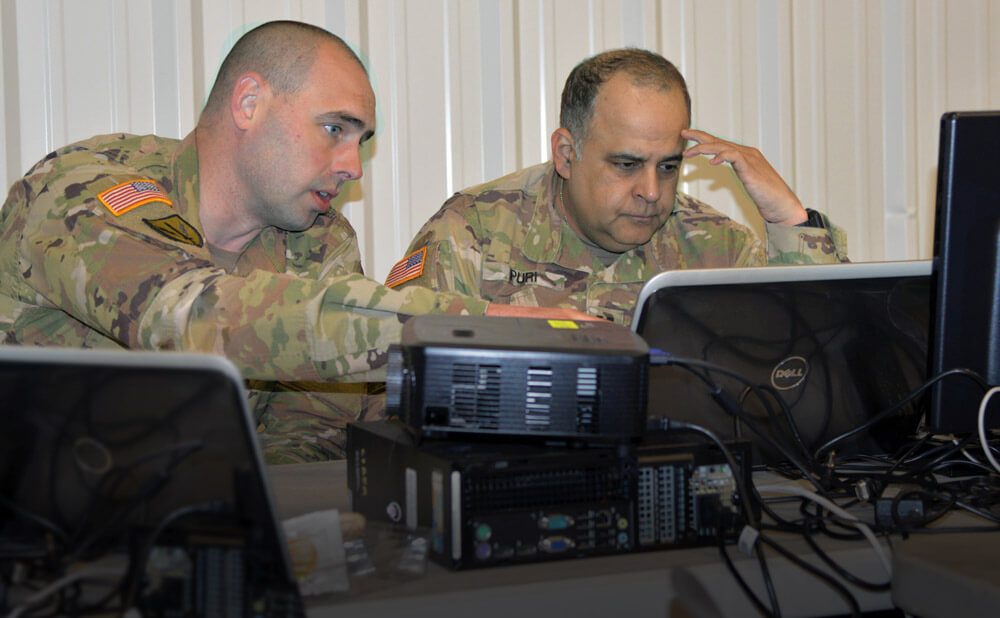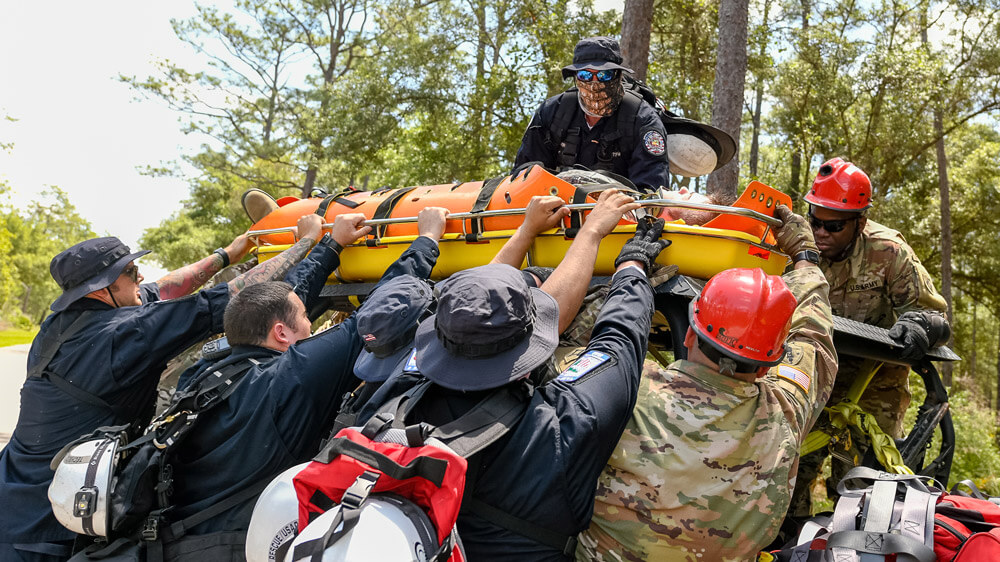“Rescuer on the ground!” shouts a Soldier with the Oklahoma National Guard’s elite 63rd Civil Support Team as he safely reaches the surface.
“Up on main!” the rest of the 63rd CST members reply as the rescuer prepares and pulls up a simulated injured person from a dangerous and confined area during the unit’s ropes rescue technician training Jan. 9 at the High Plains Technology Center in Woodward, Oklahoma.
“Our main mission is to learn how to be able to lower someone down using ropes from a high point, and also to be able to raise them back up,” said CPT Aaron Dougherty, operations officer with the 63rd CST.
The weeklong training is part of an annual refresher and recertification for members of the 63rd CST, who continually train on all tasks needed to successfully complete their mission as the Oklahoma National Guard’s team of first responders. The event included the basics of rope rescue, from knot tying to the more advanced portion of rappelling down and up a steep, simulated cliff.
“Most of what we do will be in an emergency setting,” CPT Dougherty said. “If for some reason during our normal mission we need to rescue one of our own people, we have the ability to rescue them. Another time we would use this training would be to augment a search and rescue team, like [Oklahoma] Task Force 1, throughout the Oklahoma region.”
The 63rd CST is filled with highly trained and educated Soldiers and Airmen, dedicated to their mission and the community. Their mission includes: supporting civil authorities during incidents, with the ability to identify chemical, biological, radiological, nuclear and explosive agents or substances; assessing current and projected consequences; advising on response measures; and assisting with appropriate requests for additional State support.
Another crucial benefit the 63rd CST brings to a real-world situation is its mobile command center and mobile communications center, both of which allow the unit to develop products at the incident location and integrate communications systems with civilian authorities.
For the 63rd CST to be at the top of its game, the unit requires frequent training – such as the ropes rescue course – both internally with team members and externally with other State agencies. The external training allows each entity to understand each other’s lingo and standard operating procedures, all to be better prepared if a real-world emergency occurs.
“You’re always training and preparing for anything that could happen,” CPT Dougherty said. “The things that we do are such a broad spectrum, and so any given moment you’re given a situation [in which] you really have to think critically on how to solve that problem.”
BY CPT LEANNA MASCHINO, OKLAHOMA NATIONAL GUARD



